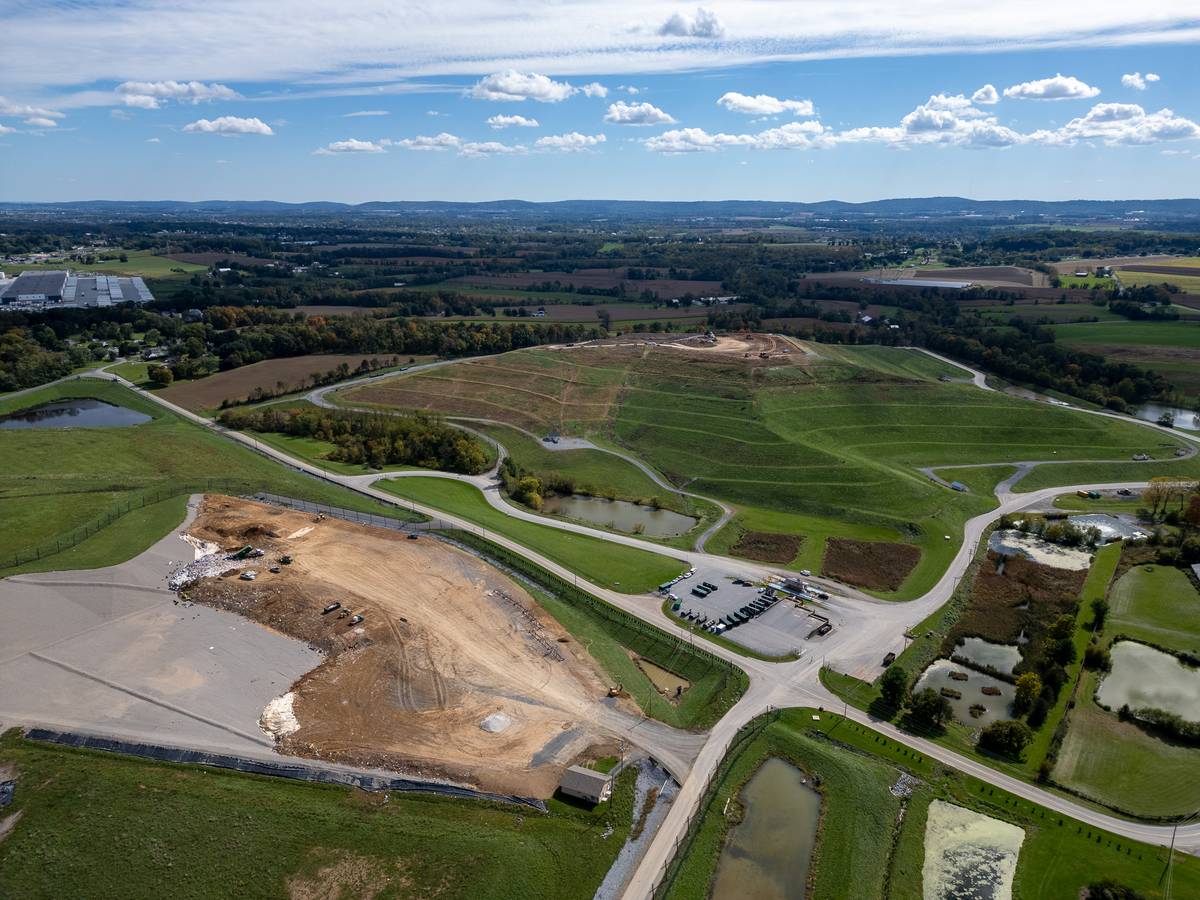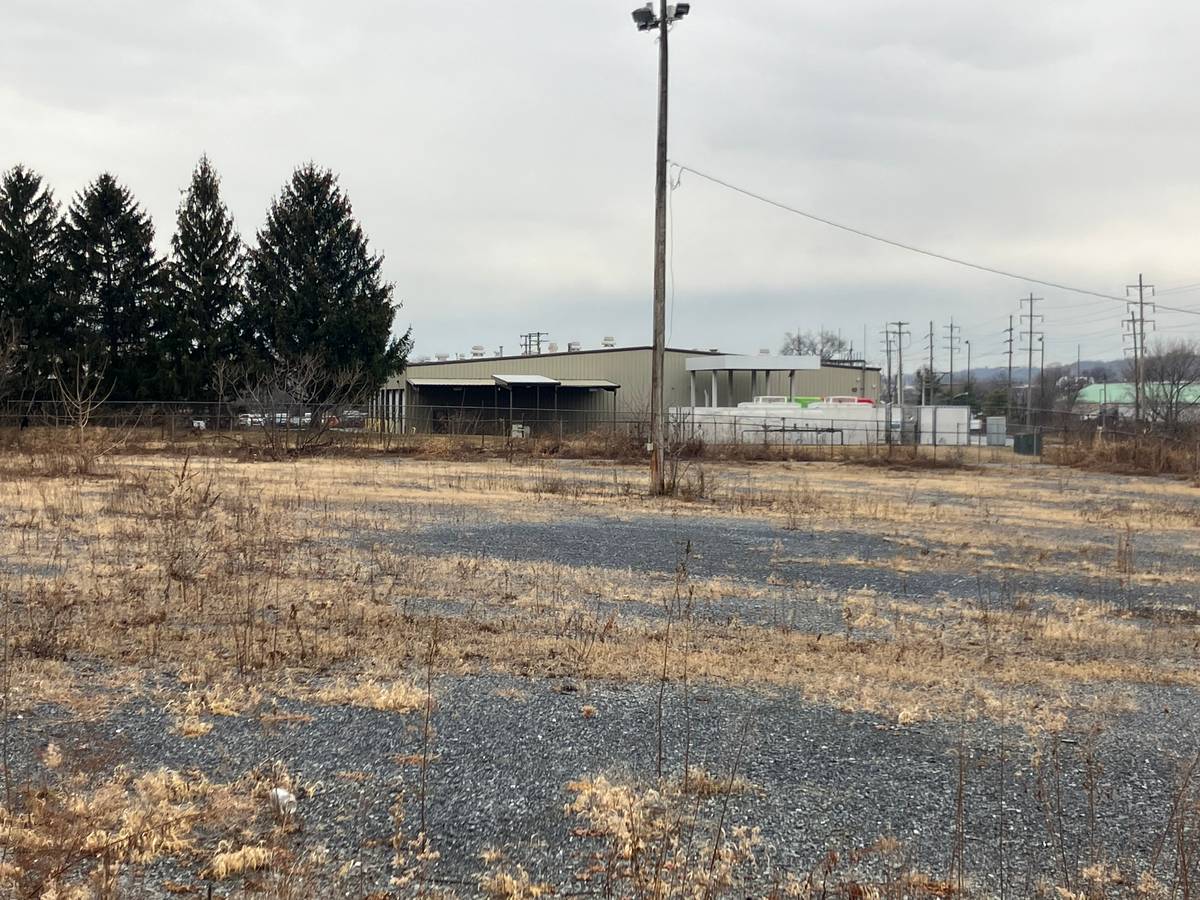Thousands of gallons of milk are going down the drain as dairy farmers in Lebanon County and throughout the United States find it hard to get their products to market for sale.
Meanwhile, some retailers are still limiting how much milk people can buy because panic-buying at the onset of the coronavirus pandemic caused a run on food staples, including milk. But, as several local dairy experts said Thursday, there’s more milk out there than they know what to do with.
“It’s sad to see all that good milk going down the drain just because our system is vulnerable,” Nelson Martin, who owns Country Sunrise Creamery, a family farm in Myerstown, said Thursday.
“There is no doubt that there has been a supply management breakdown when it comes to the current dairy situation in parts of the Northeast,” agreed Chris Torres, editor of American Agriculturist, a Richland-based production information authority for farmers across the northeast.
“A lot of fluid milk has been dumped on farms as demand for fluid has decreased from the panic buying earlier in March,” Torres said. “Still, lot of people I have spoken to say there are empty shelves in stores or stores are still limiting milk purchases.”
It’s a frustrating situation for many, said Emily Barge, communications and marketing manager for the Center for Dairy Excellence in Harrisburg.
“There’s been a drastic decline of sales in food service and school service,” she explained. “While retail sales of fluid milk are actually up significantly because of all of the panic buying that was going on, it’s not enough to make up for the loss in the food service establishments.”
That has led to “drastic changes in demand,” she said.
Dairy farmers typically produce more milk in the spring, Barge said—that’s just basic cow biology—but COVID-19 has made it harder to get their product to the consumers.
“It’s challenging for everyone right now to keep the milk moving to market, which is why in some areas milk is being dumped,” she said. “There’s plenty of milk to go around. People are doing what they can.”
“It’s not just a Pennsylvania thing. It’s happening all over,” Mat Haan, dairy educator for the Penn State Extension office in Berks County, explained Thursday.
This time of year, he said, “a lot of the fluid milk is going to schools, and the cheese is going to the restaurants. With schools closed and the restaurants closed or only doing takeout, the demand is not there. The pipeline is closed down, there’s nowhere for it to go.”
To make matters worse, some processing facilities and shipping companies have reduced their workforce, either because of actual illnesses or fears of the virus’s spread, Haan said. “So they’re behind,” he said.
Anne Divjak, vice president of government relations and external communications for Dean Foods, parent company of Swiss Premium Dairy in Lebanon, said in an email Thursday that she, also, has heard the stories but “are not ourselves instructing anyone to dump milk.”
She shared a March 31 letter from William Schiek, executive director of the Dairy Institute of California, which she said is being used to spread the word nationally that “there are no issues with the dairy supply chain and that there is no longer a need for retailers to restrict milk sales.”
In his letter, Schiek said he is confident the dairy industry can “meet consumer demand for milk and dairy products.”
“These are very unusual times,” he said, noting that as government leaders, businesses and citizens came to understand the severity of the COVID-19 pandemic, “we saw an unprecedented surge in retail demand for many dairy products, but particularly for fluid milk.”
Although that created “temporary challenges within our distribution networks” that led to out-of-stock situations in many grocery stores, Schiek said limits on milk purchases are no longer necessary.
“We’ve got milk. It’s coming,” Haan agreed. “There’s no need to limit purchases.”
“It’s bad. It’s really, really bad right now,” Torres said. Dairy futures are “way down,” he said, and “it’s going to be a struggle for farmers for the next few months at least.”
He said the American Dairy Association Northeast has asked anyone who sees stores limiting milk purchases to take a picture, note the location, date and time, and email the photo and information to Beth Meyer at bmeyer@milk4u.org so the association can try to iron out the wrinkles in dairy supply.
“The demand for dairy products collapsed last week,” Torres said. Industry projections are warning that prices may go as low as they were in 2009.
“Ask any dairy farmer, that’s a benchmark year for bad years,” he said. “It’s going to be real bad times. Until any of these markets open up, it’s going to be tough.”
Unfortunately, he said, exports to places like Mexico and China also have tanked, making the problem even worse for local producers.
The impact on farmers varies depending on the operation. Martin said he’s had fewer problems at Country Sunrise Creamery because they milk their cows and bottle and market their own milk.
“We’re a little insulated from the supply chain because we are our own supply chain,” he said. “In the last three weeks or so we’ve had a very strong demand for our milk. But, because we are in charge of getting it right from the cow to the store, we’ve had to hustle.”
He’s seen the problem for other farmers, however.
“We just had a farmer bring a couple thousand pounds of milk here that he was told to dump,” Martin said. “He thought it was better at least to make it into cheese, so we made a couple hundred pounds of cheese for him.”
“A month ago we didn’t see this coming. It’s hard to know what we’ll see a month from now,” he said. “But the demand is strong.”
In fact, he said he’s getting a lot of new customers buying directly from the farm because “they don’t want to go to the grocery store any more.”
The good news is, the U.S. Department of Agriculture has announced that dairy farmers “will receive some form of relief for their dumped milk,” Barge said.
Details on how much and when are not yet available, she said.
Torres said the USDA has asked dairy farmers to keep a record of all wasted milk. Farmers will get paid by the government for their losses, he said, although the payments won’t equal the losses.
There are no solid numbers yet on how much milk was dumped in the last week, he said, but he said he’s seen reports of more than 200 truckloads of milk being wasted in the Northeast Atlantic region alone.
“There’s thousands of dairy farms,” he said.
He also said the National Milk Producers Association is “pushing hard” to get an insurance program to protect dairy farmers for unforeseeable losses such as this.
At present, he said, the only thing that will get dairy farmers back on their feet is “the resumption of some sort of normalcy in this environment. Resuming exports would help. If schools would open up, if restaurants would open up, that would definitely help, too.”
In the meantime, Haan said, “dairy farmers will keep doing business as usual.”
“They’re worried,” he said. “The dairy economy over the last three or four years hasn’t been great. When we were coming into 2020, we thought it was going to be good year. The prices were looking good. This was going to be a rebuilding year.
“It’s not going to be that any more.”
Read all of LebTown’s COVID-19 coverage here.
Is there a story you think LebTown should report? Let our newsroom know using the form below.
Help us provide journalism Lebanon County needs.
If you are thankful for LebTown, consider joining as a member. Members get an inside look at our publishing schedule each week, plus invites to a members-only Facebook group and happy hours.
Learn more and join now here.
Subscribe to our newsletter for updates each weekday at 3 p.m.























